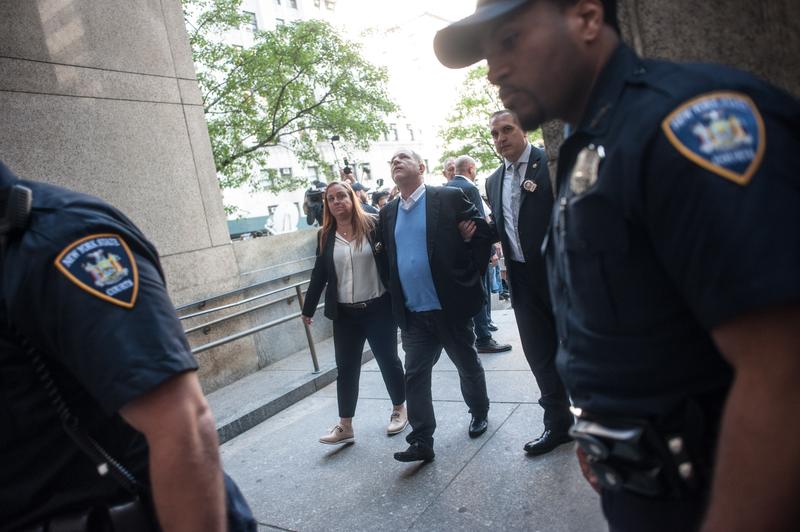
Last week, Harvey Weinstein turned himself in to New York authorities and was officially charged with rape and sexual assault with two women in separate incidents.
The dramatic arrest marks the next step in the story that sparked the #MeToo movement, after The New Yorker and The New York Times reported wide-ranging allegations of Weinstein's abuse last fall.
Suzanne Goldberg, the director of Columbia Law School's Center for Gender and Sexuality Law, spoke with Jami Floyd, the host of WNYC's All Things Considered, about what the high-profile prosecution means for the #MeToo movement.
"Relatively few rape cases wind up being prosecuted as a general matter and there's no reason to think that will be different there," Goldberg said.
While sexual assault and abuse cases remain tough for prosecutors to prove, she said, #MeToo has helped criminal prosecutions on another level.
"Some of tradition of disbelief toward woman, the undermining of women who bring these accusations ... some of that skepticism ... is going away," she said.
Weinstein has denied all allegations of non-consensual sex, and but checked himself into a sex rehab facility in Arizona before now, and though he has not yet filed a plea for these charges, his attorney says he will plead not guilty. On Tuesday, Weinstein's attorney Benjamin Brafman told reporters the woman who accused Weinstein of rape was involved in an ongoing consensual relationship with the film producer after the alleged attack. That woman remains anonymous.
